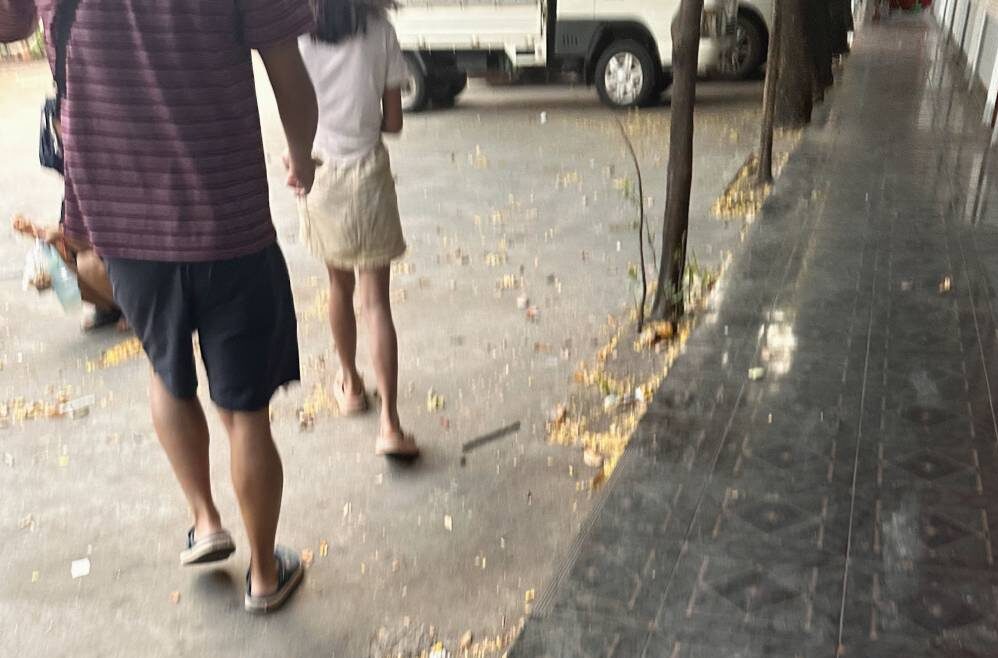Child sex tourists contribute to lost generation of Lao girls

In a quiet corner of the Lao capital Vientiane, an unremarkable compound conceals a dark and exploitative operation.
Behind one door, a room resembling an elementary school classroom is filled with girls, some perhaps as young as 10 years old.
An investigation by Kyodo News has found that foreign men, including Japanese nationals, are among those who frequent such places for sex.
The child sex trade has become a pressing concern in Laos, where underground compounds operate discreetly but openly enough to be found through social media or word of mouth.
Multiple establishments were identified in Vientiane serving clients from China, South Korea and Japan.
Embassy warning
In June this year, the Japanese Embassy in Laos issued a warning on its website urging its nationals to avoid involvement in exploitative activities, citing concerns raised by posts on social media.
The embassy warned that using child prostitution services overseas is also subject to punishment under the Child Prostitution and Pornography Prohibition Act at home.
One compound visited by a Kyodo News reporter hosted a group of Japanese men who believed the journalist was also a tourist and allowed him to join.
A local man acted as guide, leading them first to a room where around 10 girls, estimated to be in their mid-teens, were waiting. When a request was made for “younger” girls, the group was taken deeper inside.
In a back room, about 10 children were seen sitting or lying on thin mattresses. The reporter departed as the visitors each chose a girl and moved toward hotel rooms within the compound.
Disguise
At least three other similar compounds operate in the city, some disguised as restaurants. Staff told reporters that most of the clients are Chinese, followed by Japanese, South Koreans, and occasionally Westerners.
According to local sources, most of the girls in these compounds come from rural ethnic minority communities. A Lao woman of Khmu ethnicity who assisted in the reporting said recruiters regularly bring girls from her home region in central Laos.
This year, Kyodo News traveled to the woman’s village nestled in the mountains and found compounds similar to those in the capital.
Teenagers there described being lured into prostitution by poverty, family pressure or false promises of legitimate work.
“I was born in a poor northern village in Laos and sold my virginity to a Chinese man for a large sum when I was 12 years old,” a girl, who said she is now 15, told Kyodo and the assistant away from the compound where she works.
‘No hesitation’
“My older sister did the same, so there was no hesitation on my part to do so, too. After that, I moved to this village and started working here.”
At a different compound resembling a restaurant in the village, another girl who claimed to be 16 said, “I thought I’d be cooking and washing dishes here so I was shocked (that I had to provide sexual services).
“I absolutely do not want my 10-year-old sister to work here. I want to be able to send her to school with the money that I earn.”
The village is situated along a busy highway linking China and Thailand, where truck drivers make up a steady stream of clients.
Another factor fueling the problem is the rise of cross-border marriages. With China’s gender imbalance leaving many men without partners, marriage brokers now operate in Lao villages. Families sometimes agree to such arrangements because the payments offered are several times higher than local dowries.
One mother described how a middle-aged Chinese man visited her home with a broker seeking to marry her daughter.
“One day, he suddenly visited. After he came here a few times, I finally agreed,” said the mother. “My daughter is living well in China now, so we are lucky.”
Other families, however, have refused such offers after hearing reports of abuse. Critics in Laos and abroad label the practice as a form of trafficking.
Norihiko Yamada, a researcher at the Japan External Trade Organization’s Institute of Developing Economies, who specializes in Lao politics, said ethnic minority girls face particularly limited opportunities.
Factory jobs
Factory jobs in cities are unattractive because of long hours, low wages, and strict schedules, while cultural differences and discrimination from the majority Lao population create further barriers.
“When girls leave their villages to find work, they often rely on relatives and friends already in the city. These connections frequently lead to prostitution, and other girls follow, creating a cycle,” said Yamada. “Some girls tend to think they need to do this kind of work to help their family.”
The issue has intensified since the late 2000s, when Chinese-funded projects such as rubber plantations expanded in Laos. Economic ties have brought more Chinese men into contact with Lao women, including through marriages arranged by brokers.
Yamada said the problem is not easily solved, but stricter enforcement against foreign offenders and stronger international pressure on the Lao government can make a difference.
















